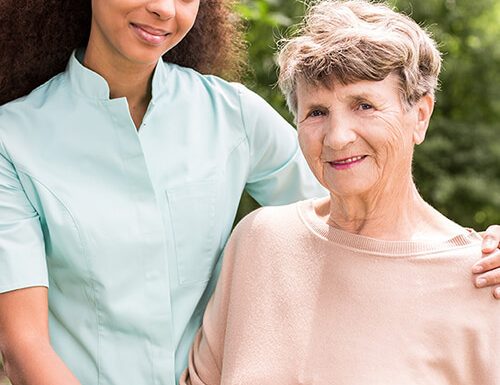Understanding the Role
- Assistance with Activities of Daily Living (ADLs): HHAs help with bathing, dressing, grooming, toileting, and mobility.
- Household Tasks: They may assist with light housekeeping, meal preparation, and laundry.
- Health Monitoring: Some HHAs provide basic health monitoring, such as taking vital signs and managing medications, though they are not licensed medical professionals.
Finding the Right Home Health Aide
- Agency vs. Independent: Decide whether to hire through a home health care agency or directly. Agencies typically offer trained professionals and handle background checks and scheduling, while independent aides may offer more flexibility.
- Qualifications: Look for HHAs with proper training and certification. Certification requirements vary by state, so ensure they meet local standards.
- Experience: Consider aides with experience in caring for elderly individuals, especially those with specific medical or physical needs.
Interviewing Candidates
- Assess Skills and Experience: Ask about their experience with elderly care, familiarity with any medical conditions or special needs, and their approach to caregiving.
- Check References: Contact previous employers or clients to verify the aide’s reliability, competence, and professionalism.
- Compatibility: Ensure the aide’s personality and approach align with the elderly person’s preferences and needs.
Legal and Administrative Considerations
- Background Checks: Conduct thorough background checks to ensure safety and trustworthiness.
- Contracts and Agreements: Create a clear contract outlining the duties, hours, pay rate, and other expectations. For agency hires, review their terms and conditions.
- Insurance and Liability: Verify that the aide (or the agency) has appropriate insurance coverage to protect against potential issues.
Monitoring and Communication
- Regular Check-ins: Regularly check in on the aide’s performance and the elderly person’s satisfaction with the care provided.
- Open Communication: Maintain open communication with the aide to address any concerns, preferences, or changes in care needs.
- Feedback: Encourage feedback from the elderly individual to ensure their comfort and satisfaction with the care.
Training and Support
- Ongoing Training: Ensure the aide receives ongoing training and support to handle evolving care needs or new medical conditions.
- Support Resources: Provide the aid with any necessary resources or tools to perform their duties effectively.
Emergency Preparedness
- Emergency Plan: Ensure the aide is familiar with emergency procedures, including contact information for family members, healthcare providers, and emergency services.
- Medical Information: Provide the aide with important medical information, including allergies, current medications, and any specific care instructions.
Additional Considerations
- Cultural Sensitivity: Ensure the aide respects and understands the elderly person’s cultural or personal preferences.
- Technology: Utilize technology, such as monitoring systems or health management apps, to assist in coordinating care and keeping track of health metrics.
Cost and Budget
- Cost: Understand the cost of hiring a home health aide, which can vary based on location, level of care needed, and whether the aide is independent or agency affiliated.
- Insurance and Financial Assistance: Explore options for insurance coverage or financial assistance programs that might help with the cost of home health care.
Engaging a home health aide can greatly enhance the quality of life for elderly individuals by providing personalized care and support in a familiar environment. By carefully selecting and managing the aide, you can ensure that the elderly person receives compassionate and effective care.
[/vc_column_text]

Need Personal care?
Your local team of Client Care Managers are on call 24/7 to answer your questions and work with you to design a customized plan of care that is right for you.
Personal care services
Caring for the elderly can be challenging, but it’s also deeply rewarding. Balancing their physical needs with emotional support and maintaining their independence as much as possible are key components of good care.
